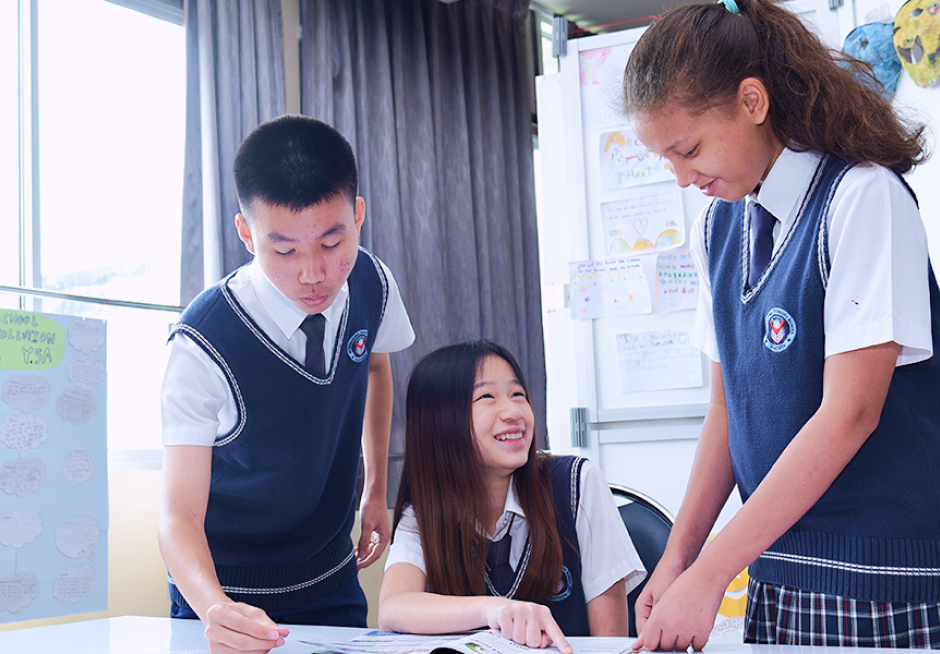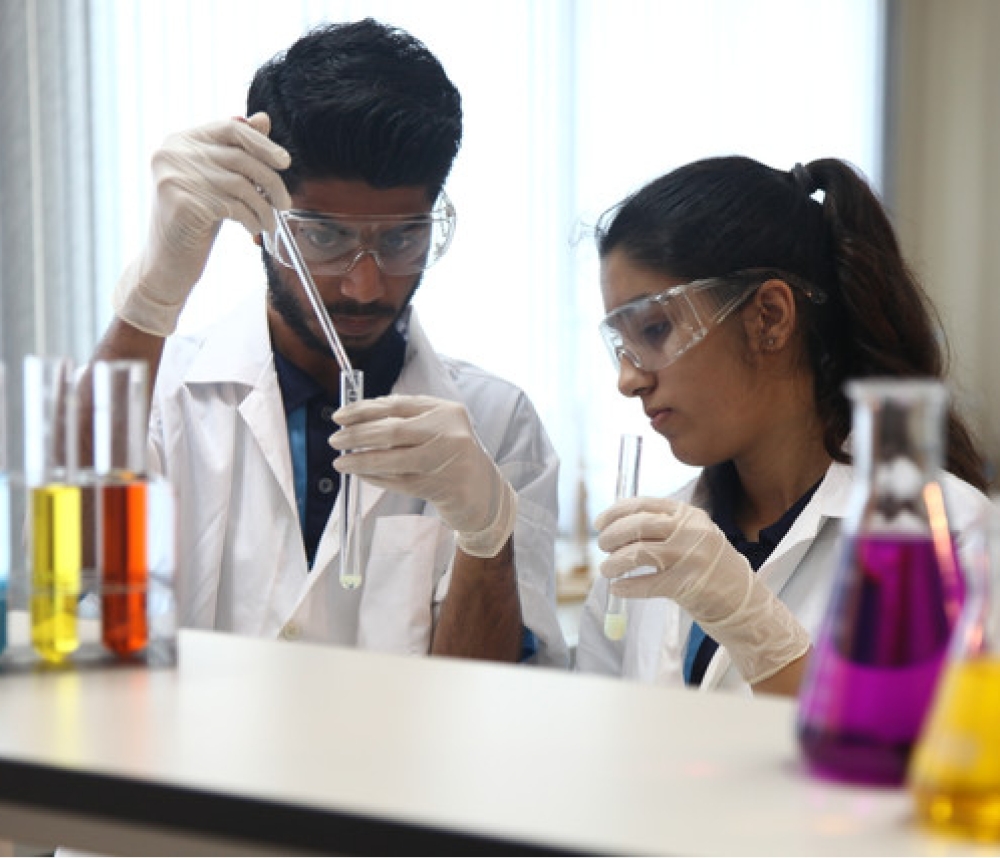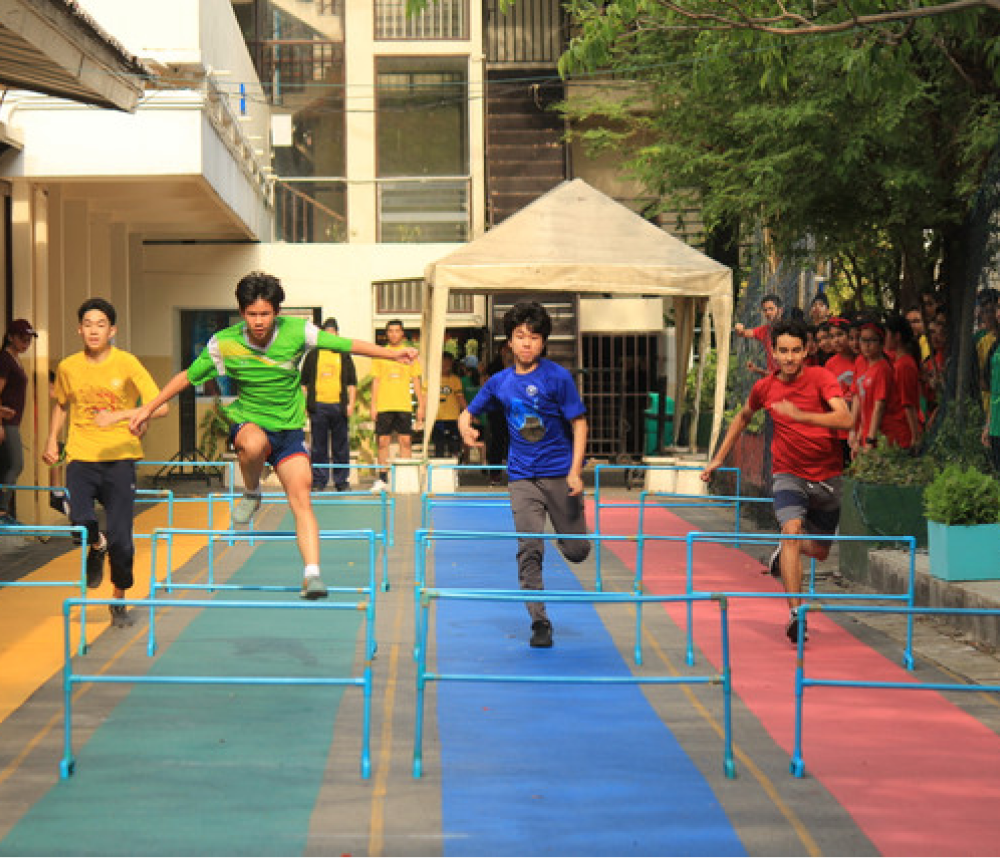CURRICULUM
Key Stage
Early Years Foundation Stage
KEY STAGES 1-3
At IPS, our vision is to provide the best possible start and support to learners through quality and consistency in early years’ settings. Learning and development is encouraged in a healthy, safe, secure, and anti-discriminatory environment through age-appropriate activities and experiences.

We believe in providing opportunities for partnership between parents and teachers for the holistic development of the learner. And to that end, our lessons and activities are designed to achieve the early learning goals that equip the learner with knowledge, skills and understanding.
At Kindergarten, our curriculum is based on the British Statutory Framework for the Early Year’s Foundation Stage (EYFS). Our EYFS curriculum nurtures not only the interest and talents of our students but also motivates them to be a lifelong learner.
The EYFS in IPS includes Kindergarten 1 (ages 3-4) and Kindergarten 2 (ages 4-5).

EYFS curriculum in IPS is based on following principles:
- Every learner is a unique child constantly learning:
- To be resilient, capable, confident, and self-assured.
- To be strong and independent through positive relationships.
- To benefit and develop well in enabling environments with teaching and support from adults.
- To reflect on the different rate at which each learner develops and learns.
- To adjust practices to provide education and care to all learners including those with Special Educational Needs (SEN).
Areas of Learning and Development
- Communication and Language
- Listening, attention and understanding
- Speaking
- Personal, Social and Emotional Development
- Self-regulation
- Self-management
- Building relationships
- Physical Development
- Gross motor skills
- Fine motor skills
- Literacy
- Comprehension
- Reading
- Writing
- The Natural World
- Mathematics
- Numbers
- Numerical patterns
- Understanding of the World
- Past and present
- People, culture, and communities
- Expressive Art and Design
- Creating with materials
- Being imaginative and expressive
- Thai Language and Culture
More Learning Opportunities
To complement the abovementioned subjects, at IPS we have regular assemblies and performances, field trips, festival celebrations, clubs, sports days, and fairs to enhance all-round development of our students.
Our Unique Approach
We believe in hands-on learning, and the learning through playing approach. Our lessons are designed to provide our young learners with indoor, outdoor, whole class, and small group learning experiences.
Key Stage 1-3
CORE SUBJECTS:
ENGLISH/ESL: Adopting carefully planned methods to develop children’s reading, creative writing, and speaking skills with accurate grammatical usage.
MATHS: Helping students through a range of teaching methods to explore numbers, shapes, space and measurements and tackle numeric and algebraic problems.
SCIENCE: Inculcating skills such as observing, evaluating and explaining scientific phenomena through practical experience. In secondary school, students begin to specialize in Physics, Chemistry and Biology.
THE THREE CORE SUBJECTS ARE TAUGHT:
- Humanities: An integrated field of study, including History and Geography
- Modern Foreign Languages (French, Mandarin Chinese, Hindi)
- Thai Language and Culture
- Information and Communication Technology (ICT) and Computing
- Personal, Health and Social Education (PHSE)
- Music
- Art and Design Technology
- Physical Education
The National Curriculum framework document as well as the Programmes of Study and Attainment Targets can be retrieved from here.
KEY STAGE 4 (IGCSE)
The Cambridge IGCSE curriculum offers a variety of routes for students and caters to all the different needs that students may have, including if the students’ first language is not English.

KEY STAGE 4 (IGCSE)
The Cambridge IGCSE curriculum offers a variety of routes for students and caters to all the different needs that students may have, including if the students’ first language is not English.
At IPS, we have built a curriculum around each student’s specific needs. Starting from a foundation of core subjects, it is easy to add breadth and cross-curricular perspectives. Encouraging learners to engage with a variety of subjects, and make connections between them, is fundamental to our approach.
Cambridge IGCSE offers a flexible and stimulating curriculum, supported with excellent resources and training.
The curriculum helps improve student performance by enabling them to develop skills in creative thinking, inquiry-based learning, and problem solving. It is the perfect springboard into advanced study.
CAMBRIDGE IGCSE DEVELOPS LEARNER KNOWLEDGE, UNDERSTANDING AND SKILLS IN:
- Subject content
- Applying knowledge and understanding to new and novel situations
- Intellectual enquiry
- Flexibility and responsiveness to change
- Working and communicating in English
- Influencing outcomes
- Cultural awareness
Schools have been involved in the development of Cambridge IGCSE globally. The syllabuses are international in outlook, but retain a local relevance. They have been created specifically for an international student body and avoid cultural bias.
For more information about the Cambridge IGCSE, please visit the CIE website.
KEY STAGE 5 A Level
The A Level syllabuses prepare learners for tertiary education, which is why universities globally value and recognise Cambridge International AS and A Level qualifications.
KEY STAGE 5 (A-LEVELS)
The A Level syllabuses prepare learners for tertiary education, which is why universities globally value and recognise Cambridge International AS and A Level qualifications.
Cambridge International AS and A Level develops learners’ knowledge, understanding and skills in:
- In-depth subject content
- Independent thinking
- Applying knowledge and understanding to new as well as familiar situations
- Handling and evaluating different types of information source
- Thinking logically and presenting ordered and coherent arguments
- Making judgements, recommendations and decisions
- Presenting rationale, understanding implications and communicating them logically and clearly
- Working and communicating in English
Cambridge International A Level is typically a two-year course whereas Cambridge International AS Level is typically a one-year course. Some subjects may commence as Cambridge International AS Level, after which a student may progress to a Cambridge International A Level.
More information is available on the CIE website.

